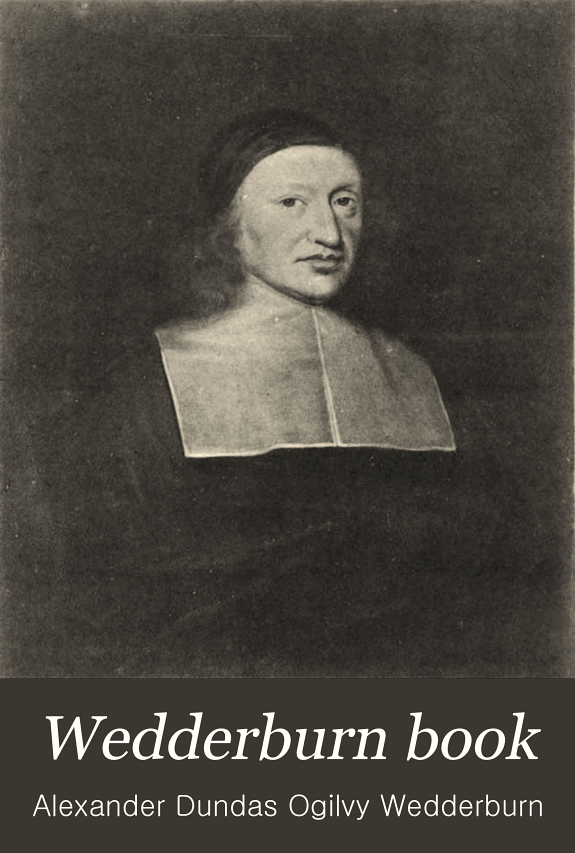The Wedderburn Book
Wedderburn Book: A History of the Wedderburns in the Counties of Berwick, and Forfar, Designed of Wedderburn, Kingennie, Easter Powrie, Blackness, Balindean, and Gosford; and Their Younger Branches; Together with Some Account of Other Families of the Name, 1296-1896, Volume 1
by Alexander Dundas Ogilvy Wedderburn
Family research has been my passionate interest since March 2020 when we went into Covid lockdown. It’s really hard to find evidence of ancestors born before 1855 when statutory records were made mandatory in Scotland - it all depends on whether the families registered their childrens’ births.
If a family is famous they will be mentioned in published histories. I had evidence that Robert Neil Wedderburn 1831 was the father of my great grandmother Elizabeth Clark Wilson 1863 and when I Googled him I found that he was mentioned in a published history! The Wedderburns were a prominent family in Dundee from the 1400s and their story was written by a man who was even more obsessed than me.
Alexander Dundas Ogilvy Wedderburn 1854’s book is held at the National Archives of Scotland. He became interested in genealogy after reading his grandfather’s memoir. John Walter Wedderburn “JW” wrote his manuscript in 1824, basing it on earlier accounts. Alexander attempts to correct previous errors and he used every possible tool he had at the time to confirm dates and relationships.
He is more famous for being John Ruskin’s editor. They met and became friends at Balliol College, Oxford.
It’s from this book that I was able to look back and find out stories about the Wedderburns that flesh out their lives, such as the one about Robert Neil Wedderburn’s great grandfather murdering a student at St. Andrews.
Alexander interviewed living members of the family to verify details - in 1891 he talked to Jane Wilson Wedderburn (Mrs James Smart) who was Robert Neil Wedderburn’s sister. She was able to verify that her grandfather John Wedderburn was the son of John Wedderburn who fled to Aberdeen.
We have no way of knowing if Jane mentioned the fact that her brother Robert might have had a child with someone before he married. Alexander only says he did not have “issue” with his wife.
In his preface Alexander talks about the value of family histories::
“apart from … sentiment, the study of the past history of a family may be encouraged on various grounds. Its critical examination gives no little insight into the value of historical evidence ; it serves as Sir Walter Scott has said “to perpetuate a great deal of what is rare and valuable in ancient manners, and to record many curious and minute facts which could have been preserved and conveyed through no other medium”; the scientist may glean from it some material towards formulating a law of heredity; while the moralist may see in the rapid decline of many families, some evidence of “grit” and good quality in those that have kept themselves prosperous and notable through a long course of years.”
A child was born and the father denied paternity while the mother abandoned her. Neither displayed good character. But Elizabeth grew up in a loving family, thanks to her grandfather William Clark 1813, and her aunts and uncle. She went to Dundee to work, married, and had three children who she loved. She made sure they were educated and took them to church. The children had a decline in fortune when their parents died within a year of each other when they were teenagers but they all went on to live long, happy, and prosperous lives.
We love collars!
Elizabeth’s children Lizzie, William, and Maggie

